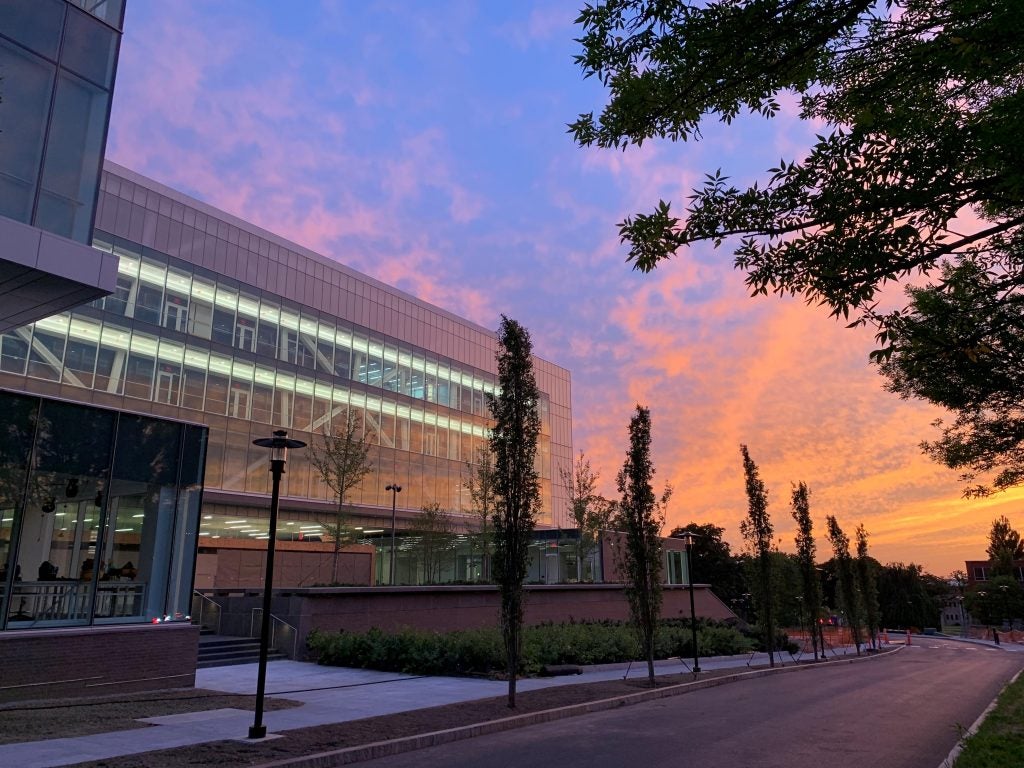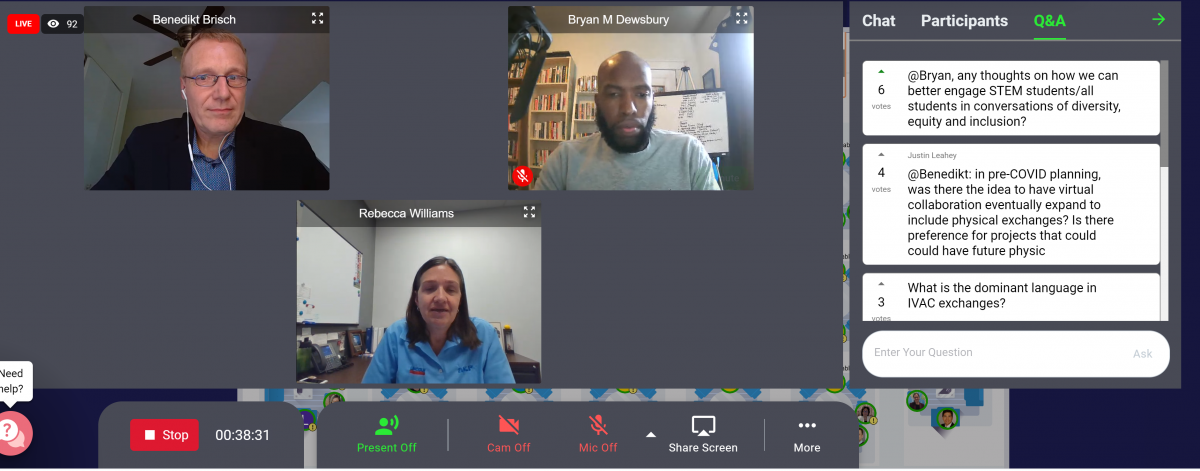Though the ACIEE has been held for more than two decades now, this year’s global pandemic led the IEP team to host the event virtually from October 21st to October 23rd, 2020. For this year’s colloquium, themed “Engineering the Future”, the biggest challenge was how to best provide quality content in an interactive and engaging way. Our solution – choosing an appropriate blend of conference platforms, working with presenters directly to plan, tweak and train for each session, and to include sessions that address essential recurring themes in international engineering education as well as the biggest challenges facing the field in 2020 such as the pandemic, economic crisis and racial and social justice.

All keynote addresses had high attendance and 4.7 to 5.0 ratings. Topics ranged from US-European relations and the response to COVID-19, the cultural and global health implications of reinventing the toilet, the combination of technical and adaptive skills needed in future leaders, and on-campus strategies to prioritize corporate and NGO campus partnerships to have the broadest possible engagement and impact on students’ global education. However, the Welcome Address featuring Sheryl Sorby, President of ASEE, was the most provocative. She shared ASEE’s mission and information about a current task force charged with rethinking and revamping its “elitist” math-focused curricula, with the goal of cultivating broader, more creative skill sets, thereby making engineering education more accessible and inclusive. The concluding Big Ideas Panel with representatives from government, academia and the corporate sector tackled big questions such as: How do you continue international education/mobility in times of a pandemic? How do you address social justice and equity issues in STEM education? How do you run an engineering company in an ethical and sustainable way, especially during a health and economic crisis? Can we develop a stackable credential system to make it easier for students to select courses that reflect their individual skills and interests as well as document their competencies in their preferred career paths? The subsequent discussion was lively and resulted in some really great points being driven home, but it is our hope that by positioning this session at the very end of the conference, that this panel served as the beginning of much longer discussions within the ACIEE community on these very topics.

In order to best deliver our selected content, the ACIEE planning team chose to utilize the Whova app as our conference hub, where participants could use the agenda to link to our live meetings, read up on speakers and network with each other outside of the event. For concurrent session streaming, we went with Blackboard Collaborate due to the array of tools available, ease of joining a session and ability to upload materials in advance. At a much later stage, the interactive conferencing platform REMO, was discovered and designated as a must-have for our “main conference room” where all large- and small-group activities could take place. In REMO, participants had the opportunity to experience more “organic” networking by bouncing virtually from table to table and casually joining conversations, as one might do during a live colloquium. From the post-conference feedback that we have since received, this appears to have been the highlight for many conference attendees!

When designing concurrent session offerings, presenters were given guidelines on how much interactive time to build in and were encouraged to work together to combine their distinct presentations to create cohesive plans for the entire session block. Members of the ACIEE team met with each panel of presenters to train them on the audience engagement tools available to them in Blackboard, while also providing training and support for all invited keynote, poster and international cafe speakers and moderators in Remo. Additionally, tech moderators including IEP staff, alums and students, were assigned to each element of the program in order to make sure these tools could be employed seamlessly. By planning in advance, being there to provide assistance in navigating within and between platforms, this really allowed for the focus to be on audience participation and the content itself.
With 354 registered participants, we broke our attendance record and are thinking of running the 2022 Colloquium in Newport in a hybrid format to allow for increased accessibility for attendees across the country and around the world!
